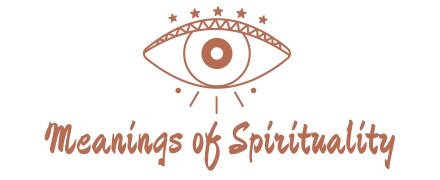This article reveals the spiritual significance of left eye twitching for females through Bible verses and their meanings.
Intrigued by that persistent left eye twitch? For women, it holds fascinating spiritual meanings that vary across cultures. Some say it heralds good fortune and joyous events; others caution it may be a sign of impending gossip or conflict. Dive deeper as we unravel both the positive and negative interpretations, and explore how emotional factors like stress and fatigue might also be at play. You’re in the right place to discover all the details.
Key takeaways:
- Left eye twitching may symbolize diverse spiritual meanings.
- Cultural differences influence interpretations of left eye twitching.
- Positive interpretations include good news, luck, and joyous events.
- Negative associations include bad news, gossip, and conflict.
- Emotional factors like stress and fatigue can trigger eye twitching.
Historical Beliefs and Superstitions

In various cultures, left eye twitching has been wrapped in mystery and superstition.
In ancient Egyptian mythology, it was believed that the twitching of the left eye was linked to the lunar eye of Horus, symbolizing healing and protection. People saw it as a divine sign.
Similarly, in old Indian folklore, left eye twitching for women often indicated auspicious events or good news on the horizon.
Conversely, early Western superstitions sometimes viewed twitching as an ominous sign warning of impending bad luck or sorrow. Medieval Europe, for example, might have interpreted it as a harbinger of misfortune.
All these beliefs highlight the diverse ways civilizations connected bodily sensations to deeper spiritual meanings.
Cultural Variations
In different cultures, the symbolism of left eye twitching varies significantly. In Chinese folklore, a twitching left eye for females often heralds good luck and incoming fortune. On the contrary, in Indian culture, it may be considered a bad omen, hinting at forthcoming challenges.
Hawaiian traditions interpret it as a sign that a stranger or a distant friend will soon be arriving. African cultures also have their unique perspectives, with some seeing it as an indication of crying soon or emotional events unfolding.
These contrasting beliefs highlight how deeply cultural interpretations can influence personal experiences and expectations. From good fortune to emotional upheavals, the meanings are as diverse as the cultures themselves.
Positive Omens
Throughout various cultures, left eye twitching in females can be seen as a harbinger of good news and positive changes.
In some traditions, it is believed to signify that someone who loves you is thinking about you or that you’ll soon receive a surprise visit from a close friend or family member.
Other interpretations suggest that it could bring about a stroke of good luck. Perhaps money or financial gain, such as an unexpected windfall or a successful business venture, is on the horizon.
Additionally, some say it might indicate the arrival of joyous news, such as a birth announcement or a celebration within your community.
These positive omens emphasize a broader view, suggesting a period of happiness and prosperity ahead.
Negative Omens
Many cultures associate left eye twitching in females with less favorable outcomes. These interpretations often come from longstanding traditions and superstitions.
In some Asian cultures, it signifies incoming bad news or gossip. It could mean someone is speaking ill of you behind your back.
African folklore sometimes interprets it as a warning of misfortune or an upcoming conflict.
Western superstitions may view it as a sign of future disappointment or emotional distress.
These beliefs are not universal and stem from cultural narratives passed down through generations.
Connection to Emotions
Emotions can significantly influence the physical responses of our bodies, including eye twitching. Stress and anxiety often cause muscles to tense and spasm. When feeling overwhelmed, the left eye might twitch as a minor, involuntary reaction.
Fatigue and lack of sleep are other contributors. When the body is tired, muscles can behave erratically, leading to twitching. Emotional exhaustion amplifies this response.
Excitement or anticipation, although positive emotions, can also trigger an eye twitch. The adrenaline rush affects the nervous system, causing brief spasms.
Understanding these connections can offer insights into managing our emotional health. Recognizing the source of stress or excitement can help mitigate its physical manifestations.





